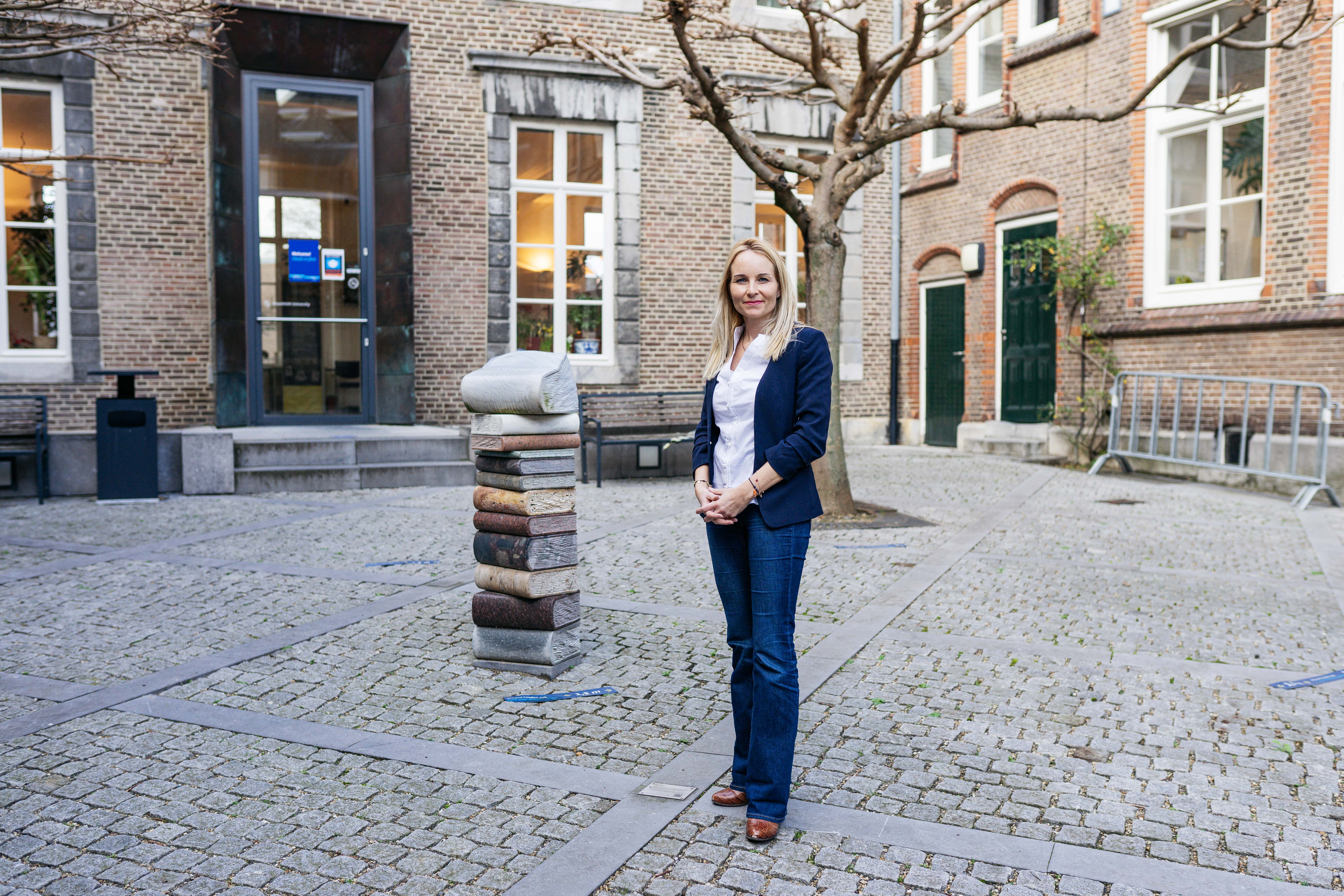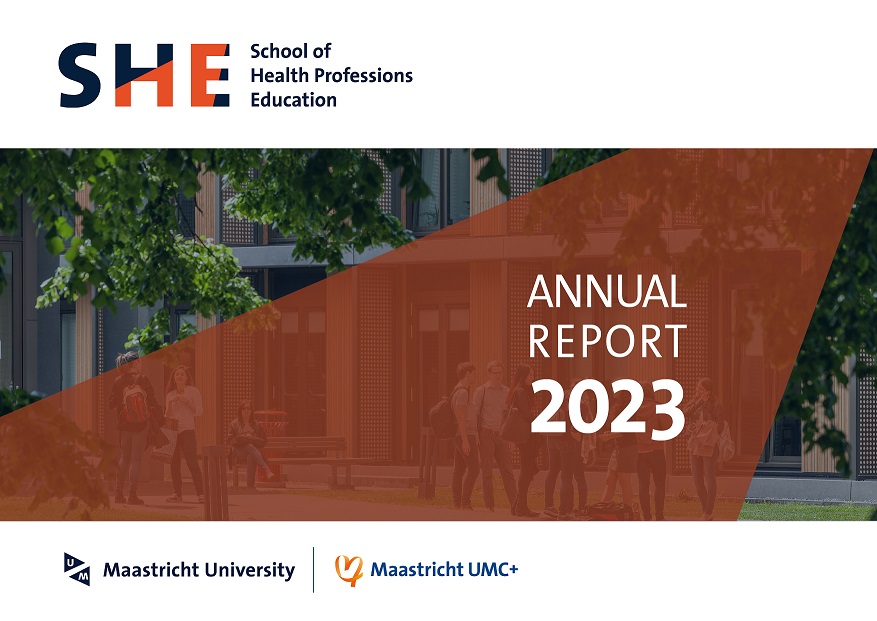The more diverse, the more inspiring
Worldwide, less than 30 percent of researchers are women. And although ‘only’ 30 percent of Maastricht University professors are female, this university ranks very high in the Netherlands when it comes to this figure. To achieve full and equal access to and participation in science for women and girls, the United Nations declared 11 February as International Day of Women and Girls in Science. We asked associate professor Giselle Bosse about her experiences and her views on the topic.
Read more about Embracing women and girls in science
Dr Giselle Bosse is associate professor in EU External Relations, Jean Monnet Chair and vice dean of Education at the Faculty of Arts and Social Sciences (FASoS). The first and most important question:
Has gender ever played a role in your career, as far as you know?
“In the sense of getting promotions, I have to say that I was always quite lucky. I never experienced a situation that I was running against a male candidate and it was an ‘all-male situation’ in the end. I think it has also helped somehow that I often had female bosses.”
How have the latter help you so far?
“People are most comfortable with hiring or promoting others that they can mirror themselves with. One of my male colleagues was on the all-male faculty board here eight years ago, and he told me: ‘We were always with a group of men, but we didn’t really notice’. Quite shocking. He sees it now, but back then, he didn’t realise it. So, when our last board was about to finish its term, the female colleagues with children were quite worried: if we get a male board again, what would that mean for us in terms of career opportunities?”
How about daily work? Do you encounter gender-biased interactions?
“Absolutely. For instance, we’re writing the strategic plan for the faculty at the moment and we are an all-female board. It might be a coincidence, but when we circulated the draft among several stakeholders in our faculty, our male colleagues usually started with ‘Nice plan, but…’ and I felt like they were sort of implying ‘You did really well, but I know better’. While our female colleagues, almost without exception, responded ‘Great plan, really nice and we have some feedback here and there’. It seems that from the senior male colleagues, the older or seemingly more senior, you get a certain attitude more often.” (text continues below photo)
The figures
- Currently, 24.2% of Dutch professors are women. With 30.1% female professors, Maastricht University is second only to the Open University (39.9%).
- Although the proportion of women is slowly increasing at every academic level, the proportion of women decreases the higher you climb the career ladder.
- Nationally, 53% of Dutch graduates are women, then 43.6% of PhD candidates, 41.9% of assistant professors and 29.4% of associate professors.
Source: Women Professors Monitor 2020, Dutch Network of Women Professors

What is that attitude exactly?
“Well, I look like the opposite of an old, male professor and I have the feeling I’ve often had to establish first that I have a certain authority and legitimacy to be in the position I am now. Others have given me that feeling by pointing out my older predecessor was more experienced than I am, or simply going to the dean if I took a decision that they didn’t agree with. The latter experience I have specifically with male colleagues.”
What do you conclude from all of this? Are these the factors that prevent women from pursuing a career in academia?
“Academia is quite a tough world in itself. It’s very competitive and you hear quite a few stories that give you the feeling you’ll have to work twice as hard to earn some respect, for instance, from female colleagues who have been told to their face that they would never make it to professor because they ‘just don’t have “it”’. Those are not encouraging stories. I think vulnerable groups, such as minorities, find it extra hard to compete. Because ‘the criteria’ you have to meet are not female- or minority-friendly. There are exceptions, but women with children have to face the fact that having children might be seen as a hurdle, which does not happen to men in the same situation, and that family life is not easy to combine with an academic job. A job which I absolutely love, by the way.”
What do you love about it?
“I really like the intellectual challenge of the research, in my case on human rights and democracy in the post-Soviet area, traveling there, doing interviews. In addition, I love the diversity of the job—teaching, management, research. Being able to pass things on to a new generation of contributors to society is great.”
What could a university or faculty do better to ensure that job opportunities are more equal?
“A good starting point is recruitment strategy. Our faculty is looking into that carefully, also regarding the ‘Recognition & Rewards’ initiative. It’s important, I think, to give room to a career path that doesn’t impose the same standards on everyone, to take into account one’s background or personal situation and different qualities. Do we just want a faculty that’s based on publications and research funding? I think there is more room for different types of people with a variety of backgrounds and experiences.
I also see it when recruiting for the master’s programmes. If you only recruit students who aim for the highest grades, you get the most boring programme ever. You want different personalities, with different backgrounds, and then everything starts to make sense. Despite all the pressure on academia, you should try to do this. It makes the university a more creative, inspiring and happier place.”
More about UN’s International Day of Women and Girls in Science
Rianne Letschert, Rector Magnificus of Maastricht University:
"A few years ago, I was annoyed by questions from journalists about my being a woman in science, or in this position, or questions about how I combined my work with my private life. Until I heard that other female academics feel very supported by this and experience it as recognition of their situation. Although we are working hard to pave the way in Maastricht, the career prospects of women in academia are not yet equal to those of men. These days, I never miss an opportunity to draw attention to this shortcoming in our sector.”
Also read
-
DATASET researchers from Maastricht University (BISCI) and Fontys applied the Digital Readiness Scan developed by Logistiek Digitaal to several regional logistics service providers, scientifically validated the underlying methodology, and analyzed the strengths and weaknesses of this tool.
-
Download our Annual Report from 2023.
-
On 12 June 2024, Dr Domenico Carolei, Lecturer in Public International Law and Public Law at the University of Stirling, gave a talk entitled 'Charting NGO Accountability: Identifying alternative accountability routes'.


